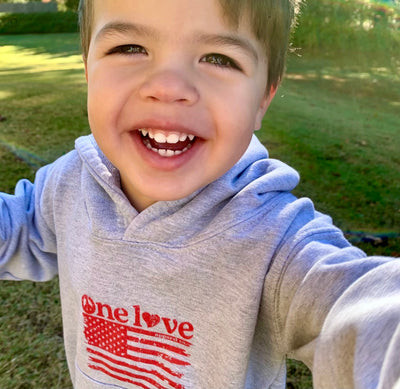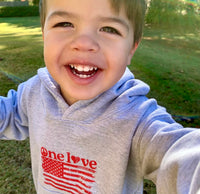The Challenges of Homelessness Among Veterans
Homelessness among veterans is a poignant issue that demands our attention and action. Despite their service to our nation, many veterans find themselves confronting the harsh realities of life on the streets. In this blog post, we delve into the formidable challenges of veteran homelessness, the complex factors that contribute to it, and the ongoing efforts aimed at alleviating this pressing predicament.
Understanding the Scope of the Issue
To grasp the full extent of the problem, it's vital to acknowledge the scope of veteran homelessness. As of my last update in September 2021, the U.S. Department of Housing and Urban Development (HUD) estimated that on any given night in America, there were approximately 37,252 veterans grappling with homelessness. This number is not just a statistic; it represents the human faces of those who have sacrificed for their country and now endure the harshness of life on the streets.
The scale of this challenge underscores the urgency of the situation and highlights the need for comprehensive solutions. The trauma and difficulties faced by veterans transitioning to civilian life, coupled with issues like mental health disorders and substance abuse, contribute to a cycle of homelessness that affects a significant portion of our veteran population. Addressing this issue is not only a moral obligation but also a demonstration of our commitment to caring for those who have served our nation.
Contributing Factors
Several complex and interconnected factors contribute to homelessness among veterans:
Post-Traumatic Stress Disorder (PTSD): Many veterans return from their service with psychological scars that can lead to mental health issues like PTSD. These conditions can make it difficult for them to maintain stable employment and housing.
Substance Abuse: Coping with trauma and the stress of transitioning to civilian life can lead some veterans to turn to substance abuse. Addiction can exacerbate homelessness, creating a vicious cycle.
Lack of Affordable Housing: In many areas, affordable housing is scarce, making it challenging for veterans with limited resources to find a stable place to live.
Economic Challenges: Transitioning from military to civilian life can be difficult, and some veterans struggle to find suitable employment or retraining opportunities, leading to financial instability.
Social Isolation: The feeling of disconnection from civilian society and a lack of social support can contribute to homelessness among veterans.
Service-Related Disabilities: Physical injuries sustained during service can limit a veteran's ability to work, potentially leading to homelessness.
Unique Challenges Faced by Female Veterans
Homelessness among female veterans presents unique challenges. Women who have served in the military may be at a higher risk of homelessness due to factors such as:
Military Sexual Trauma (MST): Incidents of sexual assault and harassment in the military can lead to trauma, making it difficult for female veterans to reintegrate into civilian life.
Limited Access to Services: Female veterans may face limited access to services tailored to their specific needs, including healthcare and shelter.
Childcare: Female veterans with children may struggle to find safe and stable housing that can accommodate their families.
The Homelessness Epidemic: A Human Tragedy
The issue of homelessness among veterans is not just a statistic; it represents a profound human tragedy. Many veterans who end up homeless are individuals who have made great sacrifices for their country. They come from diverse backgrounds, but they share the common experience of service and sacrifice.
The harsh reality is that veterans experiencing homelessness are susceptible to various dangers on the streets, including physical violence, health problems, and extreme weather conditions. The societal cost of ignoring this issue is immense, both in terms of human suffering and the strain on public resources.
Efforts to Address Homelessness Among Veterans
Despite the challenges, there are concerted efforts at the federal, state, and local levels to address veteran homelessness:
Housing First Approach: The Housing First model prioritizes providing stable housing to homeless veterans as quickly as possible, followed by support services like mental health treatment and job training. This approach has shown promise in reducing veteran homelessness.
VA Homeless Programs: The Department of Veterans Affairs (VA) offers programs such as the Supportive Services for Veteran Families (SSVF) and Grant and Per Diem (GPD) programs to provide housing and supportive services to homeless veterans.
Community Partnerships: Many communities have established partnerships with local organizations to provide services tailored to the unique needs of veterans.
Legislation and Funding: Laws like the HEARTH Act and funding initiatives like the HUD-VASH program provide crucial resources to combat veteran homelessness.
How You Can Help
If you want to make a difference in the lives of homeless veterans, there are several ways to get involved:
Donate: Consider contributing to organizations that provide housing, support, and services to homeless veterans.
Volunteer: Many local charities and shelters are in need of volunteers to help provide services to homeless veterans.
Advocate: Support policies and initiatives that aim to end veteran homelessness, and raise awareness about the issue in your community.
Employment Opportunities: If you're a business owner, consider hiring veterans, and support veteran job training programs.
Supporting Veterans and Creating Change
In conclusion, the challenges of veteran homelessness are significant, and they demand our unwavering attention and collective action. While veterans have valiantly served our nation, it is disheartening to see so many of them struggling on the streets. Nevertheless, we can make a meaningful difference by supporting organizations, policies, and initiatives dedicated to ending veteran homelessness.
One such way to make an impact is by choosing to shop with companies that prioritize social responsibility. Consider supporting brands like One Love Apparel, which not only offers high-quality products but also commits a portion of their proceeds to charities that provide vital support to veterans. By shopping with such companies, you contribute to the ongoing efforts to ensure that veterans experiencing homelessness have access to stable housing, healthcare, and the support they need to successfully reintegrate into civilian life.
Through our collective efforts, we can honor the sacrifices of our veterans by helping them find their path to stability, hope, and a brighter future. Together, we can make a positive change in the lives of those who have served our nation selflessly.



